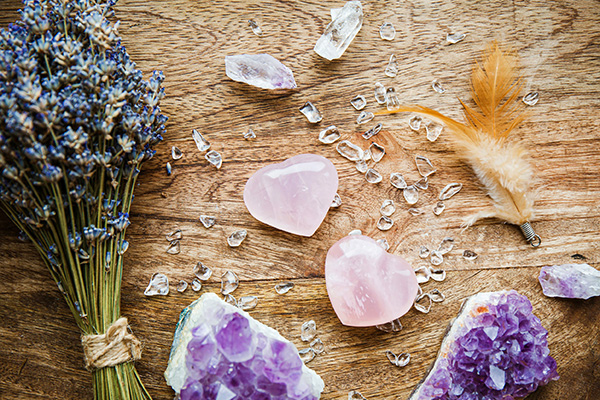Investigating the Heritage of a Satisfying Existence: The Influence of the Spirit
 It is common for spiritually aware individuals to contemplate the lives we lead and our influence on the world. We frequently ponder: are we making an impact? Is our involvement significant? How effectively are we serving our family, community, country, environment, spirit, the divine?
It is common for spiritually aware individuals to contemplate the lives we lead and our influence on the world. We frequently ponder: are we making an impact? Is our involvement significant? How effectively are we serving our family, community, country, environment, spirit, the divine?
Some individuals’ legacies are characterized by accolades, breakthroughs, or public accomplishments. Others live as extraordinary inventors, artists, scientists, philosophers, activists, spiritual guides, leaving a discernible impact aimed at enhancing the world.
The names of those with such incredible legacies are immortalized in history, their contributions shifting the dynamics of societies and industries. We see their efforts in news stories and documentaries, and learn about them in literature and educational settings.
However, these extraordinary figures comprise a minor fraction of humanity. What about the remainder of us?
What of those who rise each day, not in pursuit of fame or wealth, but to carry out the humble yet noble duties of daily existence—raising children, caring for a household, approaching work with integrity, managing a small enterprise with bravery, supporting neighbors, rescuing animals in distress?
For many spiritual seekers, our life’s legacy isn’t about honors or acknowledgment. It is merely a reflection of the heart—a matter of being present daily, showing generosity, kindness, and compassion, and creating soft ripples of goodness that we send forth into the world.
It is a prevalent misunderstanding that a significant legacy must be conspicuous, grand, or imposing. In reality, some of the deepest life legacies are those that remain unrecognized publicly or recorded in history. They persist within the hearts and souls of others—manifested through the values imparted, the kindness presented, and the wounds subtly healed.
Inscribe your identity on hearts, not gravestones. A legacy is imprinted in the thoughts of others and the tales they relay about you ~ Shannon L. Alder
The parent who nurtures strength, resilience, and compassion in their children crafts a legacy of light that reverberates for generations. The teacher who encourages a student to have faith in themselves may never witness that seed blossom into a forest of potential. The supervisor who prioritizes fairness and respect over fear and control nurtures a culture of humanity in the workplace, affecting not only employees but also their families and communities.
Even the volunteer who dedicates an hour each week to serving meals or providing a smile to someone in distress might have inadvertently given someone the strength to persevere. These seemingly minor acts are the building blocks of invisible yet enduring monuments of love and service.
The Subtle Power Of Your Influence
Every soul you touch reflects your influence. This is particularly true on the spiritual journey, where our aim is not to impress, possess, or control the world, but to uplift and heal it. A simple kind word, a willing ear, or a shared moment of laughter can be more impactful than we realize. One person indeed can alter the world.
Your legacy may not be one the world can quantify—but in the spiritual domain, it radiates. Energy is never squandered; it flows through and around us, perpetually expanding. A compassionate gesture performed today might inspire someone to extend the same to another tomorrow, creating a chain of healing that goes beyond your conscious awareness.
When you approach life from a standpoint of intention, love, and service, you add to a collective field of consciousness that elevates humanity. This is no trivial task. The Earth is evolving not just through innovation, but through the transformation of hearts and minds.
How can you ensure you are contributing? Ask yourself: What can I do today, right now, to uplift another human being? The chance to create a legacy exists in every moment we are awake.
Can you demonstrate to a child the significance of kindness through your actions? Can you provide encouragement to someone struggling with self-worth? Can you maintain patience when the world feels hurried and reactive? Can you offer grace to someone who has erred, including yourself?
You need not change the entire world; simply change the world for one person. Whether it is in your family, workplace, or neighborhood, any offering of love, wisdom, or support will send ripples outward, amplified by the network of human connection.
I believe that if I can leave behind a legacy of love and passion in the world, I will have fulfilled my role in a world that grows colder by the day ~ Lionel Richie
The Legacy Of Your Daily Choices
By leading with presence and authenticity, people will remember how we made them feel. This emotional resonance becomes part of our living legacy. Legacy is shaped not just by our actions, but by the manner in which we carry them out. It hinges on the choices and decisions we make daily.
You can start to broaden your legacy today by simply choosing to:
— Honor individuals with respect, irrespective of their role or stature.
— Discover humor in challenging circumstances to lighten the load for yourself and others.
— Uplift those struggling with self-esteem by aiding them in identifying their inherent value.
— Serve as a role model, embodying the change you wish to see in others.
— Endure through difficulties, demonstrating to others that resilience is achievable.
— Steer clear of blame and instead foster accountability and understanding.
— Generously share your time, resources, or skills, acknowledging that even minor acts of kindness can create a lasting impact.
— Provide help without anticipation of return, realizing that authentic service is born from compassion, not duty.
These actions may appear straightforward but they establish a profound foundation of integrity and compassion. They become the energetic framework you leave for others to emulate.
As you endeavor to affect change, remember that perfection is not the objective. Life is chaotic, uncertain, and often burdensome. Sometimes, simply showing up is a significant act of bravery. On such days, keep this in mind: If all you can do is all you can do, then all you can do is enough.
Permit yourself to be vulnerable. Accept assistance. Connect with the community. Occasionally, your greatest contribution is to allow someone else to support you—and in doing so, you grant them the blessing of feeling needed and appreciated.
Your moments of uncertainty, hardship, and humility are not the opposite of your legacy—they are a crucial aspect of it. They reveal to others that grace can coexist with imperfection, and that strength does not equate to the absence of vulnerability, but to the readiness to advance nonetheless.
A legacy isn’t merely what is left when you depart from this world. It’s what you give, create, influence, and contribute today while you are here that consequently endures ~ Rasheed Ogunlaru
The Gift Of Paying It Forward
As you contemplate your legacy, take inventory of your blessings. Whether they are material, emotional, spiritual, or relational, perceive them as sacred resources to be shared. One of the most impactful ways to honor your life is to pay forward what you have received.
Has someone extended kindness to you during a dark time? Offer the same to others. Have you gained insights through spiritual practices or life’s trials? Share your wisdom willingly. By becoming a steward of your blessings, your legacy transforms into an act of sacred reciprocity.
You may never fully grasp the extent of your influence. Yet, take comfort in knowing: the love you share will live on, far beyond your sight.
A soul legacy is penned not in headlines, but in hearts. It is not quantified through achievements, but through alignment. It is the glow you leave in a space, the tranquility that follows your presence, the hope you unobtrusively inspire.
So walk softly. Speak your truth. Love without reservation. Share with an open heart. Live each day as though the world relies on the compassion you provide—for in countless unseen manners, it truly does.
Your legacy is not a target but a daily practice. It is formed moment by moment, with each breath, each choice, each act of grace. And in the eyes of God, Source, Spirit, the Divine, that is more than sufficient.
|
“What you think about, you bring about; what you believe, you become.” This is Monica’s guiding philosophy, stemming from her twenty-five years of experience as a Clairvoyant, Light Worker and Medium, residing in Ontario, Canada. Monica has been a featured speaker at various Spiritualist churches, delivering Spirit messages and greetings from departed loved ones during Sunday services, All Mediums Nights, Healing Services, Meditation Sessions, and special fundraising occasions. She has advised several global business leaders and connects with her clients through love, light, and empathy. She provides insights containing optimal outcomes and constructive solutions with the assistance of her spirit guides. If you wish for Monica to assist you in shaping your destiny, you can connect with her at PsychicAccess.com. |
When we reflect on the legacy we leave, we often concentrate on our achievements, material possessions, and the effect we’ve had on others. But what about the essence of our soul? What does leaving behind a fulfilling life legacy truly signify, one that resonates with the core of who we are?
Investing time to explore the legacy of a fulfilling life involves understanding the influence of our soul on the surrounding world. Our soul represents the essence of our being, that eternal and unchanging part of us. It serves as the foundation for our values, beliefs, and passions—driving us to lead a life filled with purpose and significance.
When we lead a life in harmony with our soul, we tap into our true potential and generate positive transformations in the world. Our actions stem from our deepest desires and values, guiding us to make choices reflecting our authentic selves. This authenticity manifests in all our activities, from our interactions with others to the work we engage in.
The influence of our soul on our environment is significant. By living an authentic life, we motivate others to embrace their own true nature. Our genuineness permits others to be themselves, pursue their personal journeys, and experience lives filled with fulfillment and meaning.
Moreover, our soul creates a ripple effect in the world. When we engage in a life aligned with our core values and passions, we can profoundly impact those near us. Our decisions and actions possess the capacity to inspire change and create a lasting legacy that transcends our own lifetime.
Reflecting on the legacy of a fulfilling life invites us to assess the impact of our soul on the world. It encourages self-inquiry about what truly matters to us, what ignites our passion, and how we can live authentically according to our core principles. It challenges us to be true to ourselves, navigate our unique path, and make decisions reflecting our genuine selves.
Ultimately, a fulfilling life legacy isn’t centered on what we have achieved or owned; rather, it pertains to the influence of our soul on the world. It encompasses living authentically, positively affecting others, and establishing a legacy rooted in purpose and sincerity. It signifies an exploration of our soul’s legacy and its impact on the world surrounding us. Continue reading
















